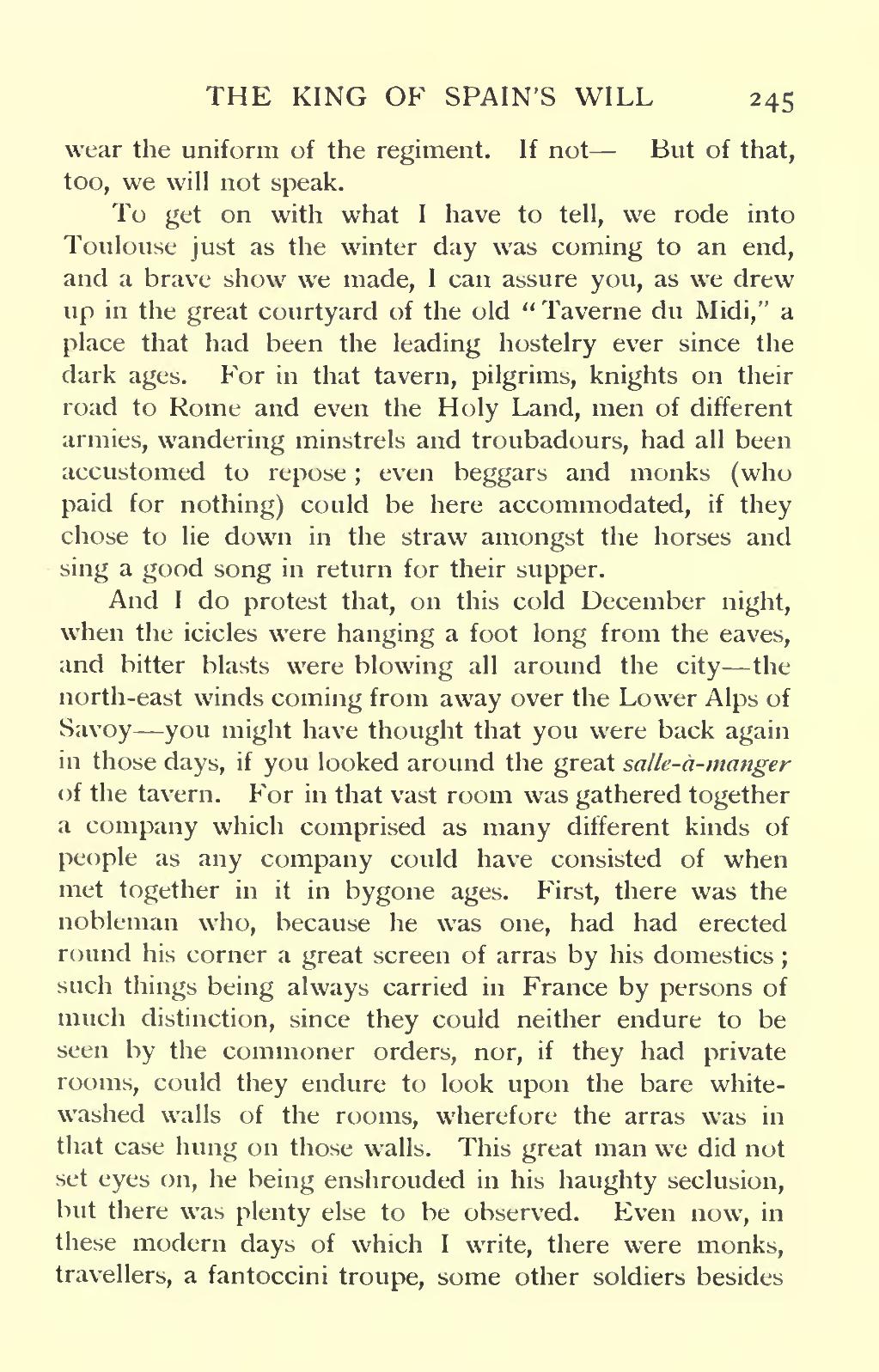wear the uniform of the regiment. If not— But of that, too, we will not speak.
To get on with what I have to tell, we rode into Toulouse just as the winter day was coming to an end, and a brave show we made, I can assure you, as we drew up in the great courtyard of the old "Taverne du Midi," a place that had been the leading hostelry ever since the dark ages. For in that tavern, pilgrims, knights on their road to Rome and even the Holy Land, men of different armies, wandering minstrels and troubadours, had all been accustomed to repose; even beggars and monks (who paid for nothing) could be here accommodated, if they chose to lie down in the straw amongst the horses and sing a good song in return for their supper.
And I do protest that, on this cold December night, when the icicles were hanging a foot long from the eaves, and bitter blasts were blowing all around the city—the north-east winds coming from away over the Lower Alps of Savoy—you might have thought that you were back again in those days, if you looked around the great salle-à-manger of the tavern. For in that vast room was gathered together a company which comprised as many different kinds of people as any company could have consisted of when met together in it in bygone ages. First, there was the nobleman who, because he was one, had had erected round his corner a great screen of arras by his domestics; such things being always carried in France by persons of much distinction, since they could neither endure to be seen by the commoner orders, nor, if they had private rooms, could they endure to look upon the bare whitewashed walls of the rooms, wherefore the arras was in that case hung on those walls. This great man we did not set eyes on, he being enshrouded in his haughty seclusion, but there was plenty else to be observed. Even now, in these modern days of which I write, there were monks, travellers, a fantoccini troupe, some other soldiers besides
